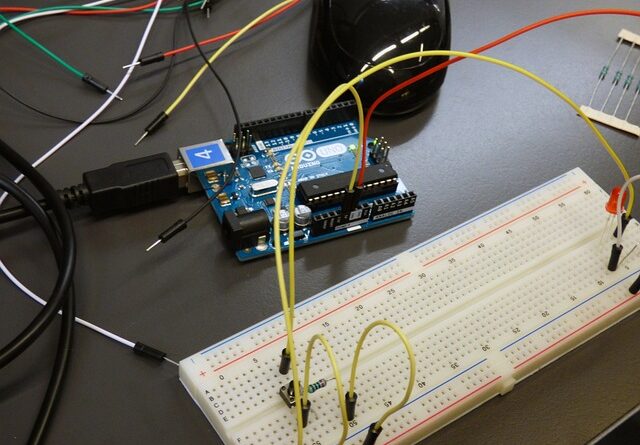Electrical Safety Inspection in Gwalior
Introduction
Welcome to the ultimate guide on Electrical Safety Inspection in Gwalior. Electrical safety is a critical aspect of any residential or commercial property. Regular inspections are essential to identify potential hazards, prevent accidents, and ensure compliance with safety standards. In this article, we will explore the ins and outs of electrical safety inspections in Gwalior, discussing the significance, process, common concerns, and frequently asked questions to ensure a safe and secure environment for everyone. Let’s dive in!
What is Electrical Safety Inspection?
An Electrical Safety Inspection is a thorough examination of a property’s electrical system to assess its safety, efficiency, and compliance with electrical codes and regulations. The inspection is conducted by qualified professionals to identify potential hazards, faulty wiring, outdated components, and other electrical issues that could lead to accidents or fires.
Why are Electrical Safety Inspections Important?
Electrical safety inspections play a pivotal role in maintaining a safe and functional environment. Here are some compelling reasons why they are crucial:
- Preventing Electrical Accidents: Regular inspections help detect and address potential hazards, reducing the risk of electrical accidents, shocks, and fires.
- Compliance with Regulations: Electrical inspections ensure that the property meets the necessary safety standards and local electrical codes.
- Protecting Lives and Property: By identifying and rectifying electrical issues promptly, inspections safeguard lives and prevent property damage.
- Cost Savings: Early detection of problems can prevent costly repairs down the line, saving you money in the long run.
The Electrical Safety Inspection Process
A comprehensive electrical safety inspection involves several crucial steps, ensuring no aspect of the electrical system is overlooked. Here’s an overview of the inspection process:
- Exterior Inspection:
- The inspection begins with an assessment of the exterior electrical components, such as service panels, grounding systems, and meters.
- Interior Inspection:
- Interior spaces, including rooms, hallways, and basements, are inspected for outlets, switches, lighting fixtures, and other electrical devices.
- Wiring Examination:
- All electrical wiring is checked for potential hazards, ensuring it is up to code and properly insulated.
- Appliance Testing:
- Appliances and electrical devices are inspected to verify their safety and proper functioning.
- Safety Device Assessment:
- The functionality of safety devices like circuit breakers, surge protectors, and ground fault circuit interrupters (GFCIs) is tested.
- Code Compliance Verification:
- The entire system is checked for compliance with local electrical codes and regulations.
Identifying Common Electrical Issues
During an electrical safety inspection, certain issues are commonly found and must be addressed promptly to maintain a safe electrical system. Some of these issues include:
- Outdated Wiring:
- Aging wiring can lead to electrical hazards, including shorts and electrical fires.
- Overloaded Circuits:
- Overloading circuits with multiple high-power devices can cause circuit breakers to trip frequently and may lead to overheating.
- Faulty Outlets and Switches:
- Worn-out outlets and switches can be potential fire hazards and should be replaced.
- Inadequate Grounding:
- Poor grounding increases the risk of electrical shocks and poses a safety threat.
- Exposed Wiring:
- Exposed wiring is hazardous, especially in areas with high foot traffic or where it may come into contact with water.
- Insufficient Insulation:
- Lack of proper insulation around wiring can lead to electrical shorts and potential fires.
FAQ’s (Frequently Asked Questions)
Let’s address some common questions about Electrical Safety Inspection in Gwalior:
- What is the recommended frequency for electrical safety inspections?
- It is advisable to conduct electrical safety inspections at least once every five years for residential properties and more frequently for commercial establishments.
- Who should perform electrical safety inspections?
- Electrical safety inspections should be conducted by licensed and certified electricians with expertise in inspection procedures.
- Are electrical safety inspections necessary for new properties?
- Yes, even new properties should undergo an electrical safety inspection to ensure that all electrical components are installed correctly and safely.
- Can I perform electrical inspections myself?
- DIY electrical inspections are strongly discouraged as they can be dangerous for untrained individuals. Always rely on professional electricians.
- What should I do if an electrical issue is detected during the inspection?
- If an issue is found, it is crucial to address it promptly. Contact a licensed electrician to make the necessary repairs or upgrades.
- Can electrical safety inspections lower insurance premiums?
- Yes, some insurance companies offer lower premiums for properties that have undergone electrical safety inspections, as they are considered lower risk.
Conclusion
Electrical safety is not something to be taken lightly. Regular electrical safety inspections in Gwalior are imperative for the well-being of residents and the protection of property. By identifying potential hazards and addressing them proactively, you can ensure a safe and secure electrical system. Remember to rely on professional electricians for inspections and necessary repairs to maintain compliance with safety standards and regulations. Stay safe, and prioritize electrical safety in Gwalior!




